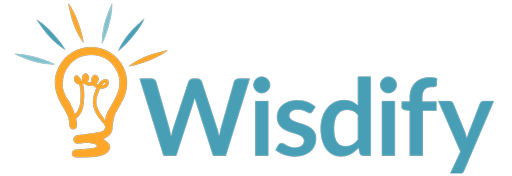Finishing your interview is a huge relief, but don’t think you can just sit back and relax! The hiring process isn’t over yet and you can still make a good or bad impression that’ll impact whether or not you receive an offer. In this competitive job market, you can’t afford to just wait and see – you need to continue to show your interest, communication skills, and follow-through.
Plan for next steps (before your leave!)
Make sure you know the next steps in the process before you leave your interview. When can you expect to hear back about the position? Whom should you follow up with and how? If the interviewer or HR representative doesn’t tell you, ask.
You’ll need this information to follow up appropriately. The best way to approach this topic is to simply say at the end of the interview, “Thank you so much for the interview. My last question is, what are the next steps?”
Collect your interviewer’s’ business card before you leave. If you didn’t, ask your point of contact for their name and email address. You need this contact information when you send thank you notes and any follow-up communications.
Conduct a post-interview debrief
After the interview, take a few minutes write notes about your interview while it’s still fresh. Was there anything you didn’t get a chance to say that you wish you had? Were there any questions you didn’t have answered or documents that you promised to send?
Also write down who you interviewed with, what they asked, what they emphasized, and anything you learned about the position. This information will help you prepare for any second round interviews and personalize your thank you notes. If you did learn new information about the position, does it make you want the job more or less? It’s not too late to determine this position isn’t right for you.
Assess what you did or didn’t do well during the interview so that you can improve for future interviews. Had you done enough background research and interview preparation (ARTICLE: “How to prepare for an interview“)? Were you able to articulate your thoughts? Would you have changed any of your responses?
Send a thank you email
Sending a thank you email is an expectation by many interviewers. Send separate, individualized thank you emails to everyone involved in your interview process within 12 hours but no longer than 24 hours. Don’t send a physical note. It will take too long to get there and will not add much value.
Keep the email short and positive. Thank the interviewer for their time, reiterate your interest and fit, and invite them to contact you if they have any further questions. Use your interview debrief notes to personalize the message. If there is something from the interview you need to clarify you can briefly address it here – but remember that this is a thank you email and not another cover letter.
Check the message for grammar and clarity so that you make a good impression.
Reach out to your references and contacts
Notify your references that you had your interview and that the employer may contact them. Check if they have any questions about the position and tell them about your experience so that they are well prepared.
If you have any contacts at the company, let them know that you had your interview and tell them about some positive takeaways. They’ll be anxious to see how the interview went, and they may even want to reach out to the hiring manager to put in an informal recommendation (don’t ask them to do this).
Continue your job search
You should continue to pursue other opportunities while you are waiting to hear back from an interview. The company may take a while to decide, have a hiring freeze, or choose a different candidate. Keep your job search momentum going so that you don’t have to start from scratch if this position doesn’t pan out.
Follow up when needed
It can take some time before you hear back after the interview. Though you may be anxious to get an update, don’t check in too soon or too often. You don’t want to come off as the needy boyfriend. However, you also don’t want to go radio silent.
Before you left the interview, you should have asked about the timeframe for next steps. Check in with the interviewer or recruiter if you haven’t heard back after a few business days past that date. If you weren’t told a date, check in about 1 week after the interview.
When you send the email, make it brief and polite. You can use wording such as:
Hi Susie – I hope you’ve been enjoying the beautiful weather. I wanted to see if there were any updates on the [job title] position. I’m still interested in the position and look forward to hearing from you. Please let me know if there is any additional information that I could provide to support your decision-making process.
If you do not receive a response after a week, you can follow up on your previous email or give a quick call. Don’t do this more than a couple of times or it will become nagging. If you have no reply after a couple of attempts, you probably won’t receive one.
If you receive a rejection…
It’s a competitive job market and you are likely to receive some rejections. Don’t let them discourage you. Remember that the interview process wasn’t a waste of time if you use what you learned to hone your skills for other, potentially better, opportunities.
Also, don’t burn any bridges. Even though you didn’t get the job, you still want to maintain a positive relationship. The position may open up or you may be interested in another role at the same company in the future. Send a note to the recruiter and/or hiring manager to thank them for their time and let them know that you enjoyed learning more about the company and would be interested in future opportunities there.



